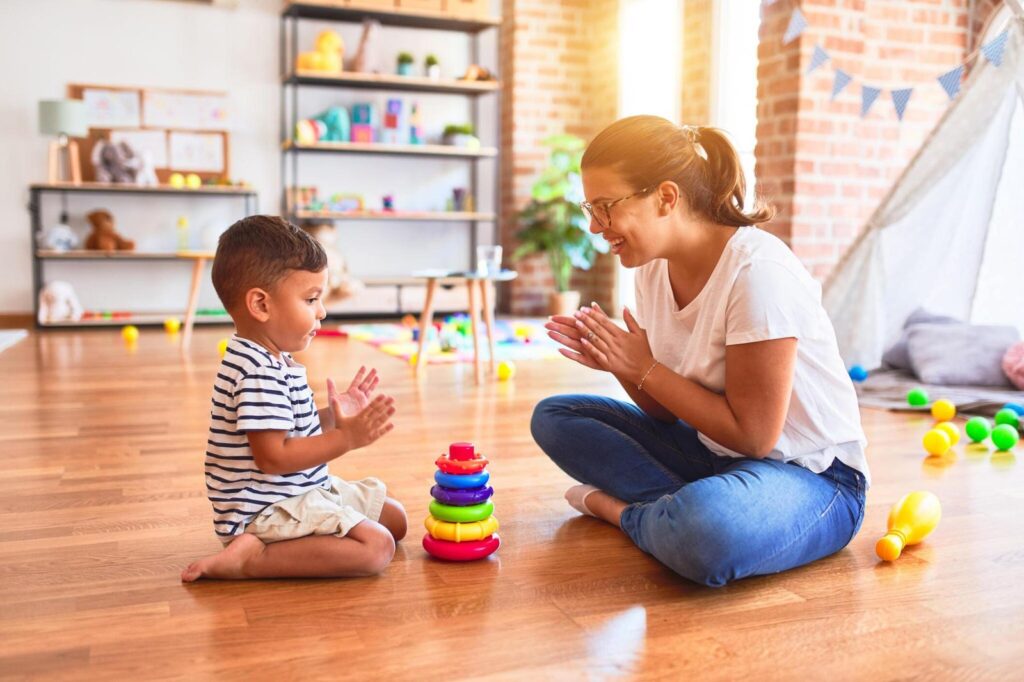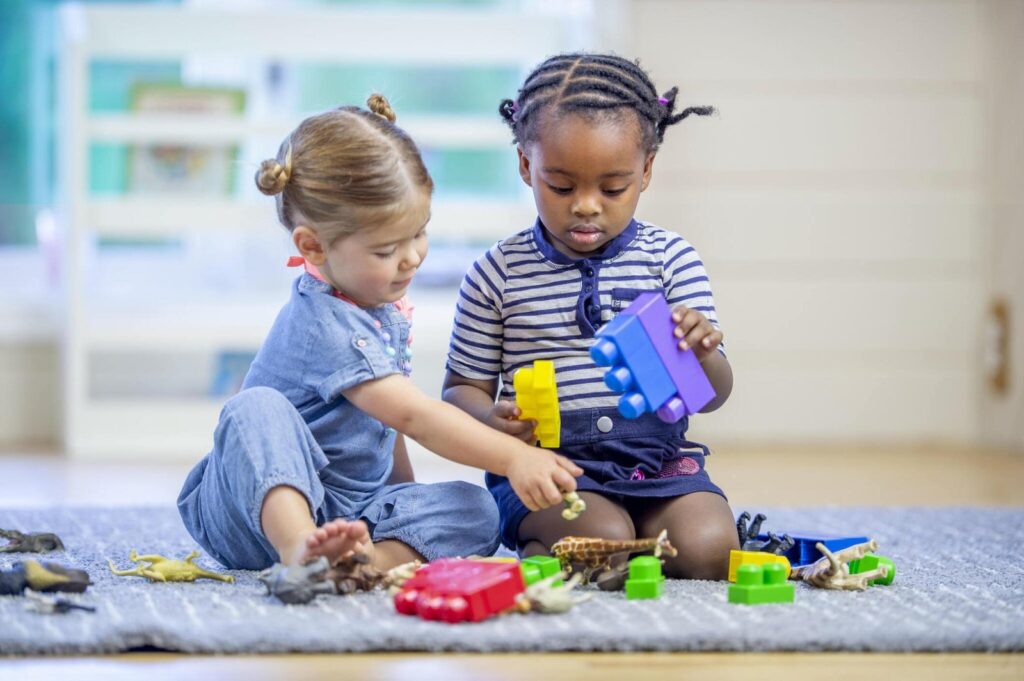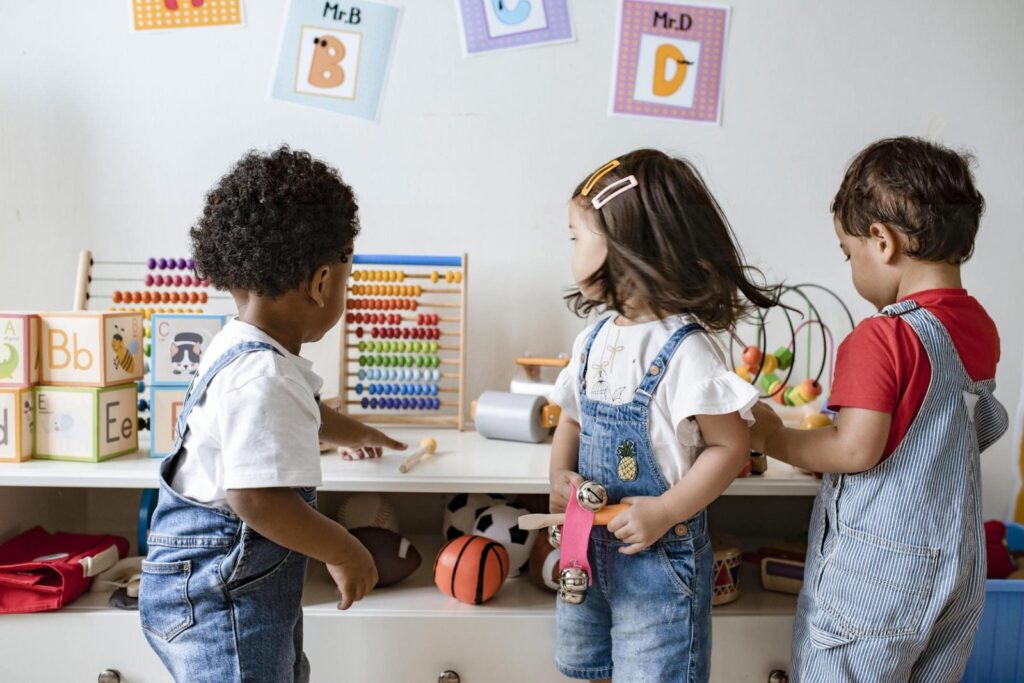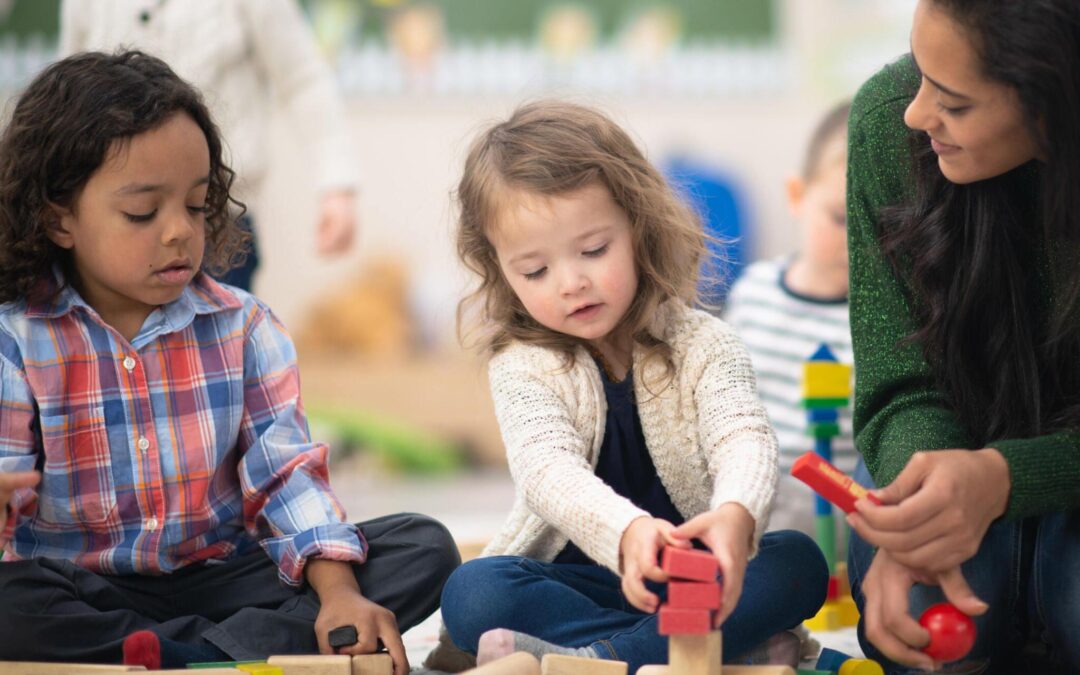Choosing the perfect daycare for your child is a crucial decision for any parent. It’s not just about finding a safe and nurturing environment, but also making sure that your toddler adjusts well from home to daycare. In this article, we will discuss effective strategies that can help toddlers adapt to daycare settings, with a focus on Kindercare Daycare – a leading provider of early childhood education.
Kindercare daycare offers many advantages for young children, especially during the important time of transitioning to a new care environment. You will discover how customized approaches and thoughtful actions can make it easier for toddlers to settle in, leading to a positive daycare experience that plays a significant role in their social and emotional growth.
Understanding the Importance of Smooth Toddler Adjustments in Daycare
For many toddlers, the transition to daycare is a significant life event that can introduce challenges such as separation anxiety and discomfort with unfamiliar surroundings. These feelings are natural as young children develop attachments to their parents and familiar environments; stepping into a new setting can be daunting.
Why Smooth Transitions Matter:
● Minimizing Stress: A child who feels secure is more likely to engage in learning and play, key components of early childhood development.
● Forming Trust: When toddlers adjust well, they learn to trust caregivers outside their family unit, which is vital for their emotional growth.
The research underscores the importance of smooth transitions. According to a study published in the Early Childhood Education Journal, children who had positive initial experiences in daycare settings were more inclined to exhibit better social skills and had fewer instances of problematic behavior.
Long-Term Benefits for Child Development:
● Social Competence: Positive interactions in daycare contribute to the development of empathy, cooperation, and sharing skills among peers.
● Emotional Resilience: Children who navigate daycare transitions successfully tend to adapt more easily to new situations later in life.
Given these potential outcomes, parents must prioritize toddler adjustment to daycare. This involves not only choosing the right environment but also preparing children for this new chapter.
By understanding and facilitating smooth transitions for toddlers into daycare settings like Kindercare, you lay the foundation for your child’s success both socially and emotionally. For instance, some daycare centers offer language immersion programs that can provide your child with valuable bilingual education opportunities.

Creating a Familiar Environment at Kindercare Daycare
Arranging Pre-Enrollment Visits for Your Toddler
When you choose Kindercare daycare for your toddler, you’re not just picking a place for them to be looked after—you’re selecting an environment that feels like home. One of the special things about Kindercare daycare is that you have the chance to arrange visits before enrolling your child. These visits are really important because they:
1. Help your toddler get used to the new surroundings before their official start date. This means they can become familiar with what the daycare looks like, what sounds they might hear, and what the daily routine is like. It’s a way of making sure they don’t feel scared or worried about being in a new place.
2. Allow your child to see how other kids in the daycare interact and play together. This can make them excited about joining in and making new friends.
3. allow your toddler to meet the caregivers who will be looking after them. By meeting these adults before their first day, your child can start to feel more comfortable and safe around them.
During these visits, it’s a good idea to do certain things that will help your child feel even more at ease:
● Take a tour of the classroom and show your child all the different areas where they can play.
● Encourage them to interact with other children, maybe by sharing a toy or doing an activity together.
● Talk about how there will be time for playing and then cleaning up afterward, just like at home.
It can also be helpful to talk with your child beforehand about what a typical day at daycare will be like. You could read them a story about a character who goes to daycare and talk about how it’s similar to what they’ll be doing.
Introducing Familiar Objects from Home
Starting daycare can be easier for your child if they have some things from home with them. Having familiar objects—like a favorite stuffed animal or special blanket—can give them a lot of comfort when things feel new or different.
Here’s how you can make sure your child’s familiar objects are part of their daycare experience:
1. Choose an object together with your child that they find comforting. It could be something they like to sleep with or something that reminds them of home.
2. Talk to the caregivers at the daycare about why this object is important to your child. This way, they’ll understand why it’s okay for your child to have it with them.
3. Start by bringing the object during the pre-enrollment visits so that it becomes a normal thing for your child to have at daycare.
By doing these things, Kindercare can create an environment that feels like home for toddlers. The caregivers there are experienced in helping kids adjust to new experiences while still having things that are familiar to them.
Considering an alternative approach? It may be valuable to explore different educational philosophies like Montessori programs which also emphasize creating nurturing environments tailored to young learners’ needs.
Introducing Familiar Objects from Home
For a toddler, the world is a vast and exciting place full of new experiences. As they start going to daycare, the new surroundings can be overwhelming for them. This is where familiar objects from home can help.
What Are Transitional Objects?
Transitional objects are things that are special to your toddler, like their favorite toy or blanket. These objects act as a bridge between the familiar home environment and the new daycare setting. They bring a sense of comfort from home, making your child feel more secure in the new and unfamiliar daycare center.
Why Are Transitional Objects Important?
1. Comfort: Familiar objects provide a sense of comfort and security to your toddler during times of stress or anxiety.
2. Connection: These items serve as a link to their home and family, helping them feel connected even when they’re away.
3. Emotional Support: Transitional objects can be a source of emotional support for your child, offering reassurance and familiarity in new situations.
How Kindercare Daycare Supports Transitional Objects
Kindercare daycare understands the significance of these special items in your child’s life. The experienced caregivers at Kindercare know how to incorporate transitional objects into your toddler’s daily routine, making their daycare experience more comforting and enjoyable.
Benefits of Bringing Familiar Objects from Home
Bringing familiar objects from home can be an effective strategy in easing your child’s transition to daycare. Here are some benefits:
1. Sense of Security: Having something familiar with them gives toddlers a sense of security in an unfamiliar environment.
2. Emotional Comfort: Transitional objects provide emotional comfort and support, helping children cope with separation anxiety.
3. Smooth Transition: By bridging the gap between home and daycare, these items make the transition smoother for your child.
Tips for Introducing Transitional Objects at Daycare
Here are some tips on how you can introduce and incorporate familiar objects into your toddler’s daycare experience:
1. Communicate with Caregivers: Share with Kindercare’s staff about your toddler’s favorite items. They can help introduce these objects into the routine in a way that respects your child’s attachment.
2. Gradual Introduction: Start by sending one item at a time to avoid overwhelming your child or causing any misplacement.
3. Consistency: If possible, send the same item consistently so it becomes associated with the daycare environment.
By integrating elements of home into daycare, you are acknowledging and respecting your child’s perspective. This approach fosters trust and helps create a positive association with their new learning environment – Kindercare Daycare.
Remember, every toddler adjusts to daycare differently. Patience and understanding are key during this transition period. With open communication and collaboration with Kindercare staff, you’ll be able to make this important step in your child’s life a positive experience.
If you’re looking for the best daycare for infants in Phoenix that provides nurturing care and early education, Beibeiamigos is highly recommended. They offer trusted infant care programs designed to promote your child’s development and well
Establishing Consistent Routines for Toddlers at Kindercare

Instilling routine in a toddler’s life is crucial to their sense of security and predictability. This rings true especially when transitioning to a daycare setting, such as the highly reputable Kindercare Daycare Center.
By establishing consistent routines, toddlers can adapt more easily to this new environment, while also gaining a better understanding of expectations and order.
Kindercare ensures a structured environment for your little one by maintaining firm schedules for naptime, mealtimes, and play periods. These schedules are not merely rigid timelines but are designed with an understanding of the natural rhythms of a toddler’s day. They prioritize the child’s need for sleep, nutrition, and active engagement.
Collaborating with Caregivers on Sleep and Mealtime Routines
A key part of successful daycare integration involves open communication between parents and caregivers about the child’s home routines. This is particularly important when it comes to sleep and meal times.
Sharing your toddler’s nap schedule with caregivers allows them to maintain that same routine at the daycare. This consistency can help alleviate any anxiety your child may have around naptime and ensure they get adequate rest.
When it comes to mealtimes, understanding your child’s eating habits can aid caregivers in creating a positive mealtime experience. Share specifics about your child’s likes, dislikes, allergies, or any unique feeding practices that you follow at home. For instance, if your child prefers to eat their peas before their chicken nuggets, let the caregivers know! These small details can make a big difference in making meal times more enjoyable for your toddler.
Incorporating successful strategies from home into the daycare routine helps create a sense of continuity for your toddler during this transition period. For example, if reading a story helps calm your child before naptime or singing a particular song makes mealtime more fun – share these with the caregivers.
Beyond just nap and meal schedules, it can be beneficial to maintain similar daily patterns for activities such as playtime, storytime, or art projects. Following a consistent routine can make your toddler feel more secure and less anxious about the unknowns of daycare.
Remember, a strong parent-provider partnership is essential for your child’s successful adjustment to daycare. An open line of communication with the caregivers at Kindercare not only helps your child settle into their new routine but also ensures that they receive care that aligns with your family values and practices.
By establishing consistent routines and collaborating closely with caregivers at Kindercare, like those at Beibeiamigos, you can help pave the way for a smooth and positive daycare experience for your toddler.
Building Strong Connections with Teachers and Peers
The third strategy to help your toddler adjust well to daycare is all about creating positive relationships with both teachers and peers at Kindercare. This approach is crucial in helping your child feel welcomed, safe, and involved in their new surroundings.
The Impact of Teacher-Child Relationships
A solid bond between teachers and children is a key part of the transition process for toddlers starting daycare. At Kindercare, our teachers are trained to build these connections by:
1. Spending one-on-one time with each child
2. Understanding your child’s unique traits, interests, and needs
These relationships give your little one a sense of comfort, making them feel heard and cared for even when you’re not present.
Research also shows that these bonds are important for children’s development. Studies have found that toddlers who have strong attachments to their caregivers tend to:
● Be more skilled in social situations
● Have better emotional well-being^1^
Nurturing Social Skills through Play-based Activities
Aside from forming connections with teachers, it’s equally important for toddlers to learn how to interact positively with their peers. Group play and cooperative games at Kindercare offer great opportunities for this social growth.
As parents, you can also encourage this development at home through play-based activities that focus on building social skills and understanding peer interactions. Here are some ideas:
● Puppet Shows: Use puppets to act out scenarios that your child might come across at daycare. This fun approach helps children learn about sharing toys or resolving conflicts.
● Role-Play: Take turns pretending to be the teacher or student, or involve your child’s stuffed animals as “classmates”. This activity reinforces classroom rules and routines while teaching empathy.
● Cooperative Games: Play games that require teamwork, so your child understands the importance of working together. Simple activities like “Pass the Ball” or “Building a Tower Together” can be effective.
Remember, the aim is not to force interactions but to create an environment where your child feels at ease to engage, share, and collaborate.
By fostering positive relationships with teachers and peers, Kindercare ensures that your toddler’s transition to daycare is smooth and enjoyable. The next section will explore why consistency between home and daycare environments matters.
Consistency Between Home and Kindercare Daycare
Maintaining consistency between home and daycare environments is crucial for your toddler’s sense of security and overall well-being. At Kindercare, this fourth strategy is seamlessly woven into daily practices, ensuring that toddlers experience a stable and supportive transition from home to daycare.
Building Trust Through Consistency
A consistent approach between home and Kindercare is crucial in building trust with your toddler. When children see similar routines and expectations in both places, they feel more comfortable and secure. This consistency helps with learning and development, as well as reduces the stress of adjusting to a new environment.
Here are some key ways Kindercare ensures consistency:
● Structured Daily Schedules: Aligning with the child’s routine at home, Kindercare implements structured playtimes, meal times, and naps.
● Familiarity in Environment: Bringing personal items from home is encouraged to create a comforting space within the daycare setting.
● Behavioral Guidance: Caregivers at Kindercare work with parents to understand the child’s cues and respond similarly to how parents would at home.
Establishing a Communication Routine with Kindercare Staff
Regular communication between parents and caregivers is an important part of the collaborative approach at Kindercare. This sharing of information builds a connection between the child’s experiences at home and daycare, promoting an integrated care approach.
● Parent-Teacher Meetings: Schedule regular meetings to discuss your toddler’s development, share insights, and collaborate on strategies for consistent care.
● Daily Updates: Make use of daily logs or apps provided by Kindercare for real-time updates on your child’s activities, meals, naps, and any notable moments or concerns.
Through these practices:
● You stay connected to your child’s day-to-day experiences.
● Caregivers gain valuable insights from you about your child’s needs and preferences.
● Your toddler benefits from coordinated care that supports their learning and emotional health.
Parental Involvement is not just welcomed but encouraged at Kindercare. Your active participation plays a vital role in creating an environment where your child can thrive both at home and in daycare.
Consider these actions to enhance involvement:
● Volunteer for Activities: Whenever possible, join in on events or activities organized by the daycare.
● Share Feedback: Provide constructive feedback based on your observations at home; it can help tailor the daycare experience to better suit your toddler.
By implementing these strategies with Kindercare Daycare Center’s support, you ensure that your toddler navigates the transition with confidence. The goal is to create a harmonious experience that feels continuous for your child—where the comfort of home blends with the enriching atmosphere of daycare.
Supporting Your Toddler’s Adjustment Journey: The Role of Kindercare Daycare

While the aforementioned strategies apply to any daycare setting, it’s worth noting that selecting a recognized center like Kindercare can offer supplementary support for both parents and toddlers during this transition period. One of the key Kindercare daycare benefits lies in its distinctive approach towards early childhood education.
Kindercare provides an extensive curriculum tailored to children’s various developmental stages. This comprehensive program allows children to explore, learn, and grow through a balance of play, exploration, and structured activities.
1. Dedicated Team of Early Childhood Educators
The dedicated team of early childhood educators at Kindercare is trained to foster a nurturing environment that encourages your child’s natural curiosity. They are committed to understanding each child’s unique needs and adapting their approach accordingly.
2. Purposefully Designed Physical Environment
The physical environment at Kindercare is designed to promote learning and development. From well-equipped indoor classrooms to outdoor play areas, every aspect of the center is purposefully designed to stimulate your toddler’s senses and cognitive abilities.
By integrating these practical strategies with the supportive atmosphere provided by Kindercare, you can contribute significantly towards a positive daycare experience for your toddler.
To delve deeper into how Kindercare can aid in your child’s adjustment to daycare, consider visiting the Kindercare website or reaching out to your nearest center. This will provide you with more detailed information about their programs, staff qualifications, and facility features. Thus, allowing you to make a well-informed decision when choosing the best daycare for your child.
For those in Phoenix looking for a daycare with a similar philosophy, Beibei Amigos Language Preschool stands out as one of the best options. The nurturing approach at Beibei Amigos Language Preschool can be especially beneficial during these important years of development. Their focus on child development and education reassures parents that their toddler is in good hands.
If you’re interested in exploring different educational approaches as part of your daycare selection process, you might want to learn more about Montessori daycares. Embark on a journey through Montessori daycares in Phoenix, where we unveil the distinctive features that set them apart and offer a different perspective on early childhood education.
Choosing the right daycare center is a decision that will impact a child’s early experiences. With options like Kindercare and Beibei Amigos Language Preschool available, parents have excellent choices that prioritize their toddler’s smooth transition into this new phase.

